Sudan faces tough challenges after vote
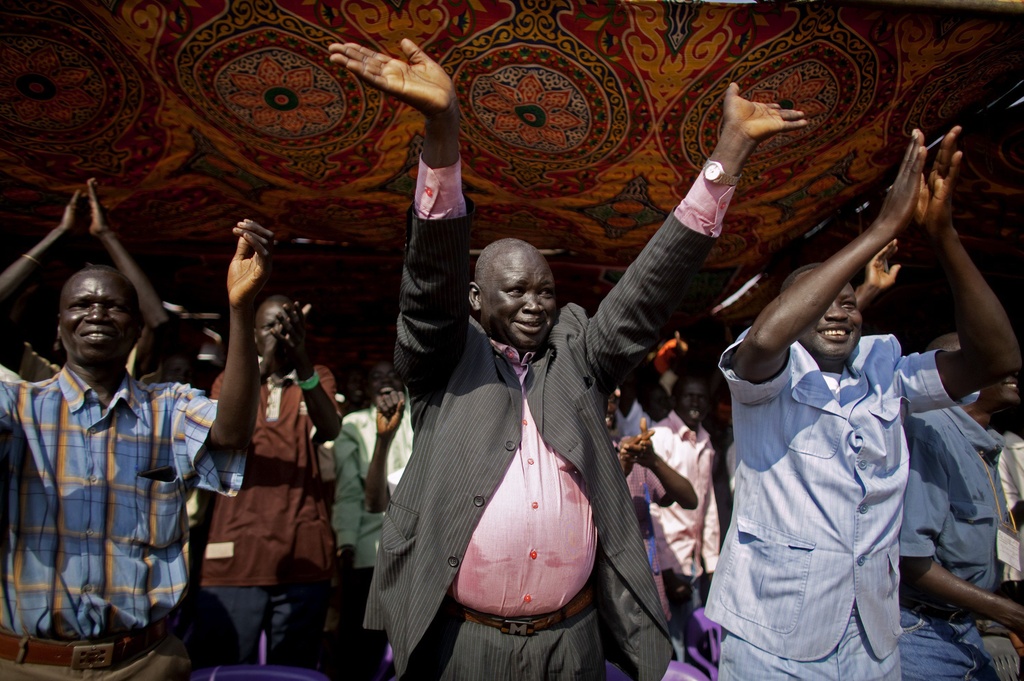
Although Southern Sudan’s separation from the north now appears a mere formality, Swiss experts say many stumbling blocks remain before two new states can be born.
On Monday Sudan’s vice president said he accepted the south’s split after the first official results showed a 99 per cent vote for independence in a referendum held in January.
The poll is the culmination of a north-south 2005 peace deal, aimed at putting an end to two decades of war which have claimed two million lives.
“We announce our agreement and our acceptance of the result of the referendum,” Vice President Ali Osman Mohamed Taha told reporters in the north’s first reaction since Sunday’s results.
Final results from the vote, which President Omar al-Bashir has said he will accept, are expected early next month. If they are confirmed, the new country is set to formally declare its independence on July 9.
The fact that this first conciliatory statement was made by Taha could be an indication that the “pragmatic camp” within the government has the upper hand – for now – says David Lanz, a researcher with the non-governmental peace foundation, swisspeace.
“But these are turbulent times for the region and Sudan in particular; the government is under considerable pressure and it remains to be seen how it will handle this pressure,” he told swissinfo.ch.
Although Sudan has defied all the odds and held a one-time referendum which was largely violence-free and credible, many critical stumbling blocks remain.
Packages
“Sudan is essentially a failed state,” said former Swiss ambassador Josef Bucher, who was actively involved in the peace agreement negotiations. “If you divide up a failed state there is still nothing very hopeful but rather there are two problems that are now posed.”
Stumbling blocks include disputes over the north-south border, citizenship rights, Sudan’s $36 billion (SFr34 billion) external debt that the south does not want to inherit, and the sensitive question of central Abyei region claimed by both sides.
Tough negotiations remain on how to divide up economic resources between north and south. Africa’s largest nation comprises millions of acres of fertile land – which could become the bread basket of the arid Middle East – gold, oil and the precious River Nile water.
“Oil is perhaps the most important aspect as both states depend quite heavily on it. The north gets about 60 per cent of its revenues from oil and for the south it is 98 per cent,” said Lanz.
“Approximately three-quarters of oil is located in the south but the only pipeline is to Port Sudan in the north. So both sides need each other.”
The solutions may come in “packages”, says Bucher.
“One might be oil together with the definition of the borders, excluding the region of Abyei,” he explained.
Underdevelopment
Southern Sudan is one of the least developed regions in the world.
“Infrastructure is very weak, basic services are limited and many displaced have recently come back making things worse even though services have improved since 2005,” explained swisspeace researcher Martina Santschi.
Coupled with this is the potential for internal conflict within groups in the south over resources and power-sharing, she added.
While the threat of north-south war has evaporated, localised clashes over disputed borders could spark wider conflict and both sides could use proxies to destabilise each other. The status of southerners in the north and vice-versa could also heighten tensions.
The current situation in the north remains volatile, say observers. Political opponents of the Sudanese regime in the north have started a “blame game” trying to hold the government responsible for a break-up.
Furthermore, the civil war in Darfur is far from resolved. President al-Bashir is wanted by the International Criminal Court for war crimes and genocide there.
Protests
The economic crisis and popular uprisings in Egypt and Tunisia have also sparked anti-government protests in the north.
There is simmering discontent with the autocratic regime, rising prices and perceived corruption, says Lanz.
“It is an autocratic regime that concentrates power and this leads to discontent both in the capital and in peripheral regions like Darfur. There is also a Facebook generation of young people who know what’s going on in the world and are unhappy,” he noted.
“But the difference [with Egypt and Tunisia] is that civil society is smaller and concentrated in Khartoum, and Sudan has a smaller middle class. And the army in Sudan is firmly in the hands of the regime as al-Bashir is a military man himself.”
There are lots of unhappy people in Sudan and there is a possibility they might mobilise, but it’s difficult to predict at this point what might happen.”
Switzerland recognised the independence of Sudan in 1956 and established diplomatic relations with Africa’s largest country in 1960. One year later the Swiss embassy opened in Khartoum.
Economic relations developed particularly from the 1950s on. Switzerland imported cotton and nuts and exported chemical products, machines and watches. In 1974 the two countries signed a convention encouraging and protecting investments.
The Swiss Agency for Development and Cooperation (SDC) has officially supported Southern Sudan since 2003 and the Darfur region since 2003, through the UN and international NGOs.
Source: Swiss foreign ministry
Northern Sudan has an Arab-Muslim culture.
Southern Sudan, closer to the tribal and traditional culture, is animist and partly Christian.
First conflict:
The first civil war between the north and south of Sudan broke out in 1955, one year before Sudan gained independence from British-Egyptian rule.
500,000 dead:
After several years of low-level conflict, the north-south war intensified at the beginning of the 1960s. Around half a million people were killed in the first war.
Peace:
The Southern rebellion signed a peace agreement with the government of Khartoum in 1972 at Addis-Ababa. The agreement did not grant the south the right to hold a referendum on independence but guaranteed the creation of an autonomous region.
Second conflict:
The dissolution of the semi-autonomous government of Southern Sudan in 1983 by Khartoum plunged the north and south into a second civil war which ultimately cost the lives of two million people.
Peace:
The war ended in 2005 with the signing of an peace accord. Six months later the leader of the Southerners John Garang was killed in a helicopter accident.
Referendum:
The referendum on self determination for Southern Sudan took place from January 9 to 15. Three Swiss acted as election observers.
Independence:
Southern Sudan’s independence will enter into force on July 9, 2011.
Sources: AFP and swissinfo.ch
(With input from Renat Kuenzi)

In compliance with the JTI standards
More: SWI swissinfo.ch certified by the Journalism Trust Initiative

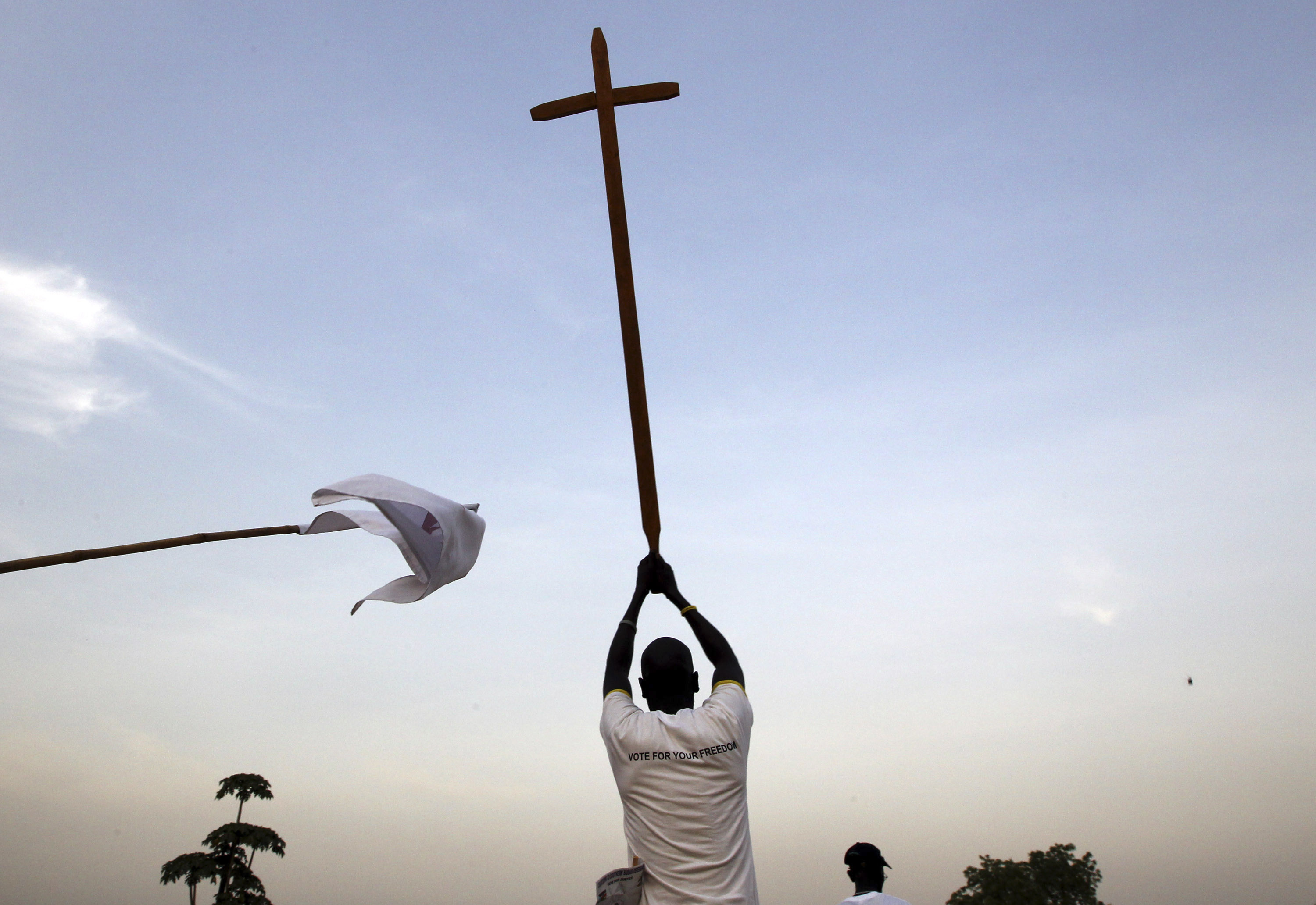
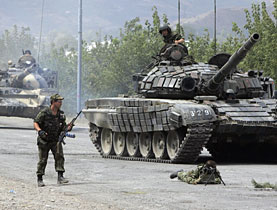
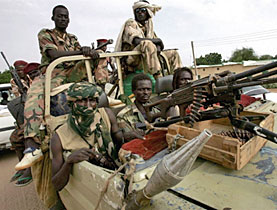
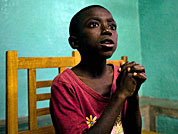
You can find an overview of ongoing debates with our journalists here. Please join us!
If you want to start a conversation about a topic raised in this article or want to report factual errors, email us at english@swissinfo.ch.